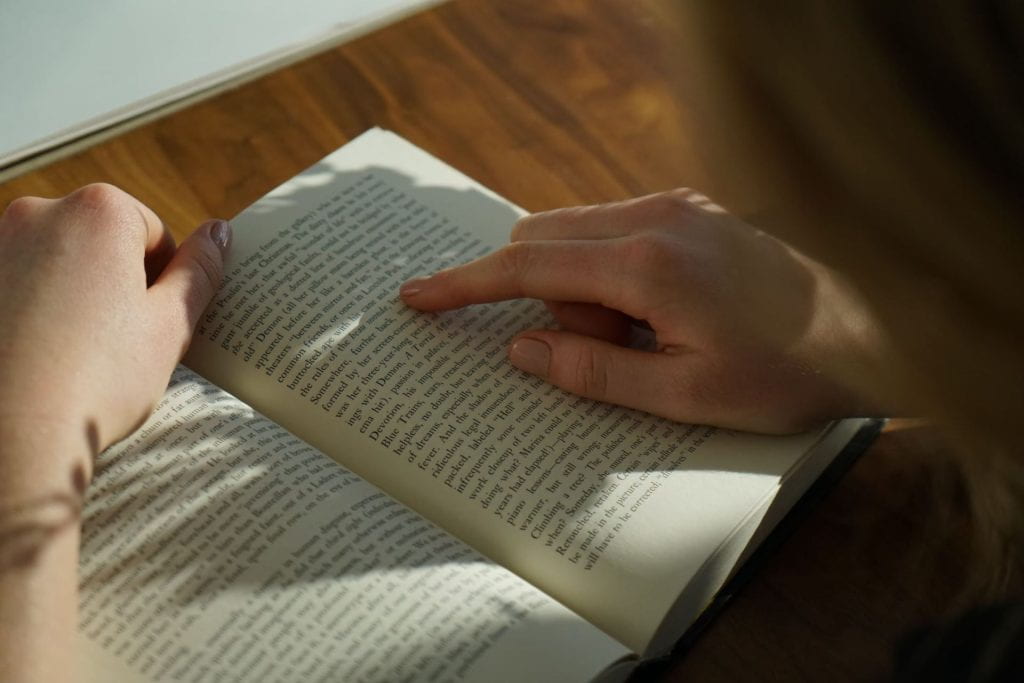Ever found yourself staring at a mountain of text, wishing you could just download all that info into your brain, Matrix-style? You’re not alone. Speed reading is the superpower you need. When you’re dealing with last-minute college assignments, it can turn a panic-filled all-nighter into a smooth, successful study session.
Now, let’s be real. We’ve all had those moments when the due date is tomorrow, and we’re desperately googling college papers for sale to write my book report as a last resort. It’s a common scenario in student life where deadlines suddenly sneak up. But what if you could tackle those last-minute assignments head-on with confidence? That’s where mastering the art of speed reading and honing your research skills comes into play. As we dive into the tips and tricks, remember: it’s all about working smarter, not harder, to ace those urgent assignments without losing your mind.

https://unsplash.com/photos/person-holding-book-sitting-on-brown-surface-zMRLZh40kms
- The Basics of Speed Reading
Speed reading isn’t just about how swiftly you can flip through pages; it’s fundamentally about absorbing information in the most efficient way possible. To kickstart your speed reading skills, delve into the strategy of skimming. This technique involves scanning for the core ideas, pivotal points, and critical facts without getting entangled in the minutiae. A practical tip to enhance your skimming efficiency is to use your finger or a pen as a pacer beneath the lines you’re reading. This simple action can dramatically increase your reading pace by keeping your focus sharp and reducing backtracking.
Minimizing subvocalization forms another cornerstone of effective speed reading. Subvocalization is the widespread tendency to silently say each word to yourself as you read through a text. Although completely eliminating this inner voice is a tall order, curbing it can significantly boost your reading speed. Here are some extra speed reading tips:
- Visual Mapping: Instead of focusing on individual words, visualize the information as images or diagrams to grasp the content faster.
- Peripheral Vision Practice: Train your eyes to capture words using your peripheral vision, enabling you to read sections or lines in chunks rather than word by word.
- Keyword Spotting: Hone your ability to spot keywords and phrases that are crucial to understanding the text’s main arguments, skipping over less significant filler words.
- Speed Reading Apps: Utilize speed reading apps that push your limits with rapid serial visual presentation (RSVP) techniques, presenting words at a speed that challenges your brain to process information quicker.
These targeted strategies can elevate your speed reading capabilities, making it easier to tackle academic readings, research articles, and textbooks with greater efficiency.
- Efficient Academic Research Strategies
When the clock is ticking, knowing how to research efficiently can save you hours.
- Begin by getting a solid grasp of your research needs to narrow down your sources.
- Use databases, for instance, JSTOR or Google Scholar, to get credible sources.
- Look for summaries or abstracts to gauge if the full text is worth your time.
- Bookmark useful sources for easy reference as you write.
- Take quick notes on key points and quotes, including page numbers for citations.
- Leverage library resources, such as online access, or talk to a librarian for guidance.
- Use boolean operators (AND, OR, NOT) and keywords to refine your results.
Understanding how to filter through information allows you to focus on quality sources rather than getting overwhelmed by the quantity.
- Mastering Note-Taking for Speed Readers
Effective note-taking is a game-changer for speed readers. It’s not about jotting down everything but capturing the essence of what you’re reading. Create a personal shorthand or set of symbols that suits you, speeding up the process of noting down key points. Digital tools can also be a huge help, allowing you to type or voice-record notes quickly, which can be especially useful for visual or auditory learners.
Another strategy is the Cornell note-taking method, which divides your page into sections for notes, keywords, and a summary. This organization makes it easier to review and study your notes later, particularly when you’re in a crunch to recall key information quickly.
- Leveraging Technology and Tools
Several tools and apps are designed to assist with speed reading and efficient research.
- Speed reading apps like Spritz or Spreeder can train you to read faster.
- Research management tools like Zotero or Mendeley help organize your sources and notes.
- Summarization tools have the ability to shorten lengthy articles into concise summaries.
- Mind mapping software helps organize thoughts and research findings visually.
- Tools for checking grammar and originality, such as Grammarly or Turnitin, help make sure your writing is refined and unique.
- Citation generators save time on formatting bibliographies.
Incorporating these technologies into your workflow can dramatically increase your efficiency. They’re designed to streamline the reading and research process, giving you more time to focus on crafting your paper.

https://unsplash.com/photos/person-reading-book-on-brown-wooden-table-taken-at-daytome-mmWqrsjZ4Lw
- Writing Under Pressure
Writing efficiently under pressure is a skill that comes with practice. Start with an outline to structure your thoughts and arguments clearly. This roadmap can guide your writing process. Yet, if you experience any difficulties, either due to the complexity of the topic or time constraints, a little support from the best thesis writing services can make all the difference. When writing, don’t worry about getting it perfect on the first try. Concentrate on capturing your thoughts on paper. There’s always time to edit and refine them later, whether on your own or with the assistance of professional writers.
Keep in mind that the initial draft is precisely that—a draft. Allow yourself the freedom to write without restraint, with the understanding that you can return for revisions and improvements. This approach can significantly reduce writing stress under a tight deadline and lead to more coherent and compelling essays.
Conclusion
Armed with speed reading techniques and efficient research strategies, you’re set to tackle last-minute assignments with newfound confidence. From mastering the art of skimming and reducing subvocalization to leveraging the latest technology and honing your note-taking skills, these strategies are your toolkit for academic success. This journey through speed reading and efficient learning is more than a set of skills—it’s a roadmap to becoming a more effective, resilient, and successful student.
Author Profile
Nicole Hardy is renowned for her insightful and meticulous journalism in education and the arts, particularly noted for her coverage of performing arts education. With a career spanning over a decade, Hardy has established herself as a respected authority in the field. Her work is characterized by deep analysis and an engaging narrative style. She holds a Master’s in Journalism from the University of Arts, specializing in arts and culture reporting.